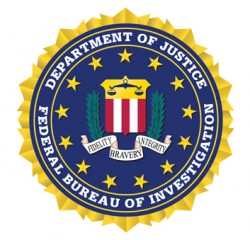Former Internet provider can finally reveal what the FBI wanted to know in 2004, judge rules

After 11 years of litigation, the onetime owner of an Internet company can finally reveal what kind of information the FBI had sought about one of his customers.
A federal judge has lifted a gag order that had prevented Nicholas Merrill from revealing the contents of the national security letter demanding the information, report the Washington Post, U.S. News & World Report, the New York Times, the Register and Ars Technica. A press release is here.
Merrill is the first person who can reveal the entire contents of such a letter, according to the Washington Post.
U.S. District Judge Victor Marrero of Manhattan had ruled (PDF) in August that the government had no good reason to keep the letter’s contents secret, since other government agencies had already revealed the type of information sought in such letters. Marrero stayed the order for 90 days to allow the government to appeal, but the Justice Department did not file one. His opinion went into effect Monday.
Merrill told the Washington Post he was shocked in 2004 when an FBI agent handed him the national security letter, used to seek customer records without court approval. The letter barred Merrill from revealing he had received the letter, the identity of the customer targeted, and the contents of the letter. Despite the secrecy demanded by the letter, Merrill contacted the American Civil Liberties Union and sued under the name “John Doe.”
The FBI withdrew its demand for the data in 2006 but continued to support a gag order. In 2010, Merrill won the right to identify himself, but a gag order on the contents of the letter remained. Merrill sued again in 2014 with the help of a Yale Law School’s Media Freedom and Information Access Clinic, resulting in the new decision.
Among the information sought about the customer and his account were associated addresses and telephone numbers; screen names; merchandise orders; associated physical, email and Internet protocol addresses; and “any other information which you consider to be an electronic communication transactional record.” Merrill believes the order could be interpreted to include web browsing history.
“The FBI has interpreted its NSL authority to encompass the websites we read, the web searches we conduct, the people we contact, and the places we go,” Merrill said in the press release. “This kind of data reveals the most intimate details of our lives, including our political activities, religious affiliations, private relationships, and even our private thoughts and beliefs.”
See also:
ABA Journal (2012): “National Security Letters: Building Blocks for Investigations or Intrusive Tools?”
Link to press release corrected on Dec. 3.



